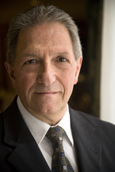
4-minute read
Si tu coûtes trop cher…
The financing of Quebec’s health care system.

1-minute read
Medical specialists in Quebec: How to unlock the reserve supply
Waiting lists for medical services in Canada are painfully long. Too many Canadians lack access to a family doctor, and our low ratio of medical specialists to population size is a growing cause of concern. Could this problem be partly solved by making better use of the supply of medical specialists’ work through mixed practice? To get an answer, the Montreal Economic Institute (MEI) conducted a survey among medical specialists to find out if some of them might be willing to work extra hours in the private sector, beyond their commitment to the public system.

4-minute read
Médecine publique et médecine privée
Health care reform in Canada.

5-minute read
The case for increased privatization of Canadian health care
Health care reform in Canada.

3-minute read
Pour un système de santé public et accessible, faisons place au privé!
Health care reform in Canada.

4-minute read
Effectifs infirmiers: une pénurie d’imagination?
The reserve supply of nursing staff time.

1-minute read
The availability of nurses for mixed practice
Demographic change is putting a heavy strain on Quebec’s public health care system. In particular, this is reflected in a greater need for nursing staff. Meanwhile, many nurses are opting to practise their profession with employment agencies and in the private sector, causing fears of a weakening of the public sector. The Montreal Economic Institute conducted an investigation among nurses to see if the labour supply is really being used to full capacity and whether some nurses would be willing to work extra hours in private practice.

1-minute read
The private sector within a public health care system: The French example
In public policy matters, debates on the health care system are, beyond a doubt, those that cause the greatest controversy. In Quebec, as elsewhere in Canada, the issue of what role should be entrusted to the private sector in the provision of health care services is especially problematic. This is indicated by the strong reactions to the recently published report of the Task Force on the Funding of the Health System, chaired by Claude Castonguay, which some blamed for suggesting a greater participation of private providers as a way toward solving the health care system’s problems.

5-minute read
Équilibré et ambitieux
Reaction to the Castonguay report on health care financing.

4-minute read
Un régime qui ne marche pas
Reaction to the Castonguay report on health care financing.

